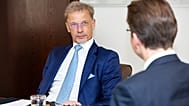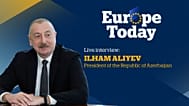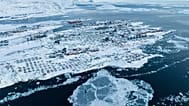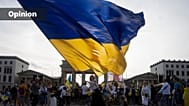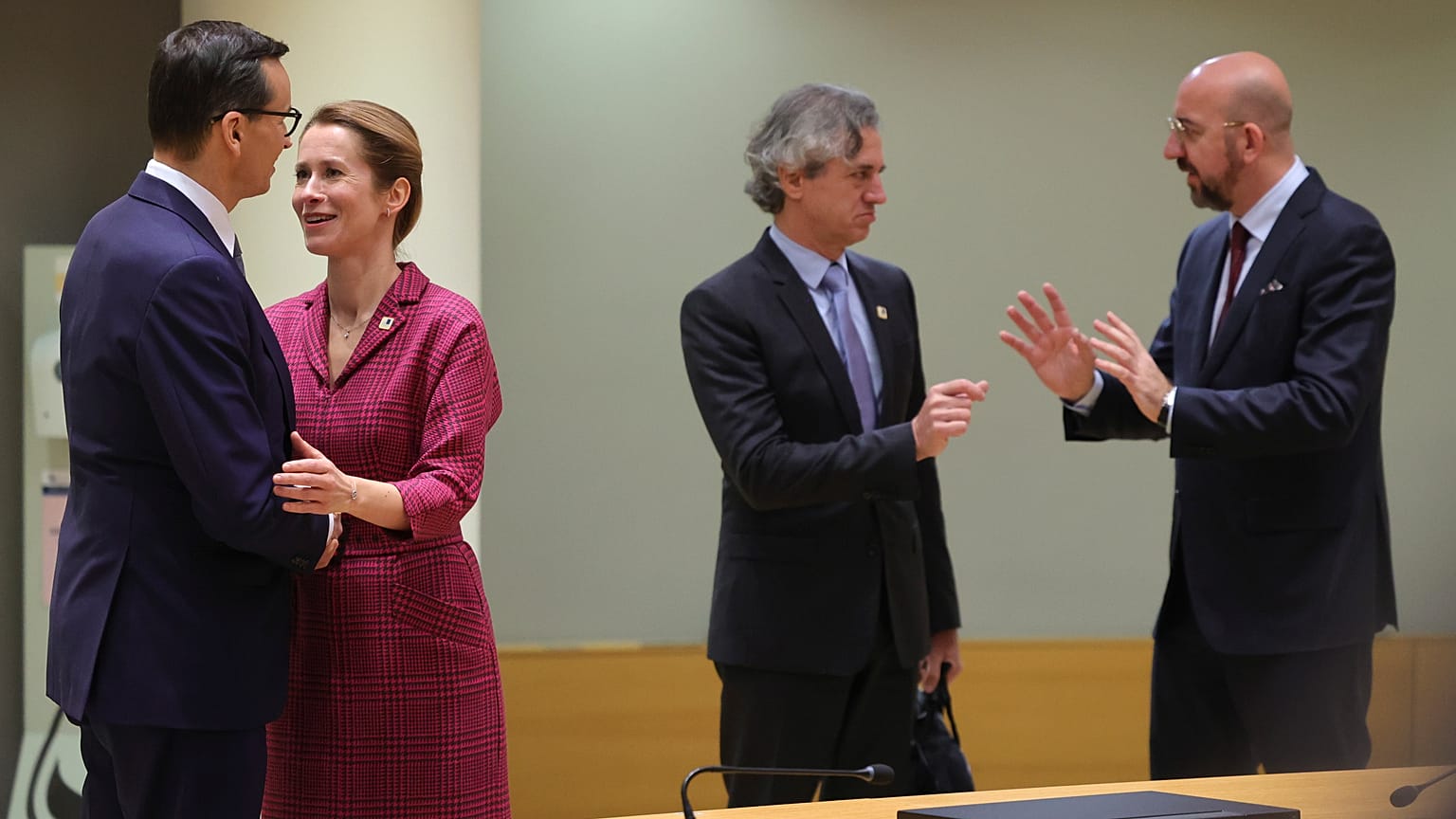A corruption scandal involving a member of the European Parliament sent shockwaves through Brussels but there was more positive news from the European Council.
The last EU summit of the year took place this week in Brussels, as leaders unlocked a whole host of issues, two of which had been held up for some time now.
An €18bn financial aid package for Ukraine was approved by member states after Poland dropped its 11th-hour opposition to it, as well as giving the green light to a global corporate minimum tax that had been blocked now since last year.
There was more too. A ninth package of sanctions was endorsed by EU countries, increasing the pressure on Putin and his regime.
Bosnia and Herzegovina also had its candidate status towards joining the bloc approved, following in the footsteps of both Ukraine and Moldova earlier in the summer.
It was a successful week for the European Council, after weeks of deadlock.
Qatargate fallout continues
But for members of the European Parliament, the same cannot be said.
In many ways, it was a week from hell, as news broke late last Friday that an MEP and a former one had been bribed by a Gulf State, allegedly Qatar, to influence political decisions in its favour.
The scandal sent shockwaves throughout Brussels, with Eva Kaili from Greece, one of the parliament's 14 vice presidents - considered a rising star among her fellow socialists - being the most high-profile member implicated.
The full scale of the corruption is still unclear, but the damage is already done, as Roberta Metsola, President of the European Parliament said on Monday.
"Make no mistake, the European Parliament, dear colleagues, is under attack. European democracy is under attack. And our way of open, free democratic societies are under attack," she told MEPs in Strasbourg.
"There will be no sweeping under the carpet. We will launch an internal investigation to look at all the facts related to the parliament and to look at how our systems can become yet more watertight."
Metsola did also promise wide-ranging reforms that would be ready in the new year to tackle corruption among MEPs, saying they would include strengthened protection for whistleblowers, a ban on unofficial "friendship groups", a review of the MEPs' code of conduct, and an "in-depth look" at interactions with third countries.
Ukraine wins human rights prize
In more positive news from the European Parliament, the Ukrainian people were awarded the EU's top human rights prize on Wednesday.
A handful of the country's politicians and members of civil society were present in Strasbourg to accept the Sakharov Prize for Freedom of Thought.
Ukrainian President Volodymyr Zelenskyy joined by videoconference to lead the hemicycle into a minute of silence in memory of all Ukrainians that have lost their lives because of the war.
MEPs awarded the prize to the Ukrainian people back in October, paying tribute to their daily fight to protect their country's independence and territorial integrity.
"We must act now, not waiting for the war to end, to bring to justice all those who unleashed it and to prevent any repetition of aggression. This will be the most effective protection of freedom, human rights, the rule of law and other common values, which are embodied in particular by this award by the European Parliament," he also told MEPs.
European Parliament President Roberta Metsola praised "the inspiring resistance of ordinary citizens making the ultimate sacrifice to delay a column of tanks, senior citizens standing up to face Russian troops with nothing but pride as weapons, brave women forced to give birth in underground metro stations."
"To these people, the message from Europe has been clear: we stand with Ukraine, we won't look away."
Ivan Fedorov, the Mayor of Melitopol who made the trip to Strasbourg, told Euronews that Russia's efforts to influence the people of Ukraine failed.
"Russia tried to put Russian propaganda in the heads of citizens in the occupied territories and said: Russia is here forever. The EU and all European institutions have forgotten you. You will never be liberated," Fedorov said.
"And such an award as the Sakharov prize, such attention that now step-by-step is given to our citizens by the European Union, it shows to our citizens that nobody has forgotten Ukrainians."

